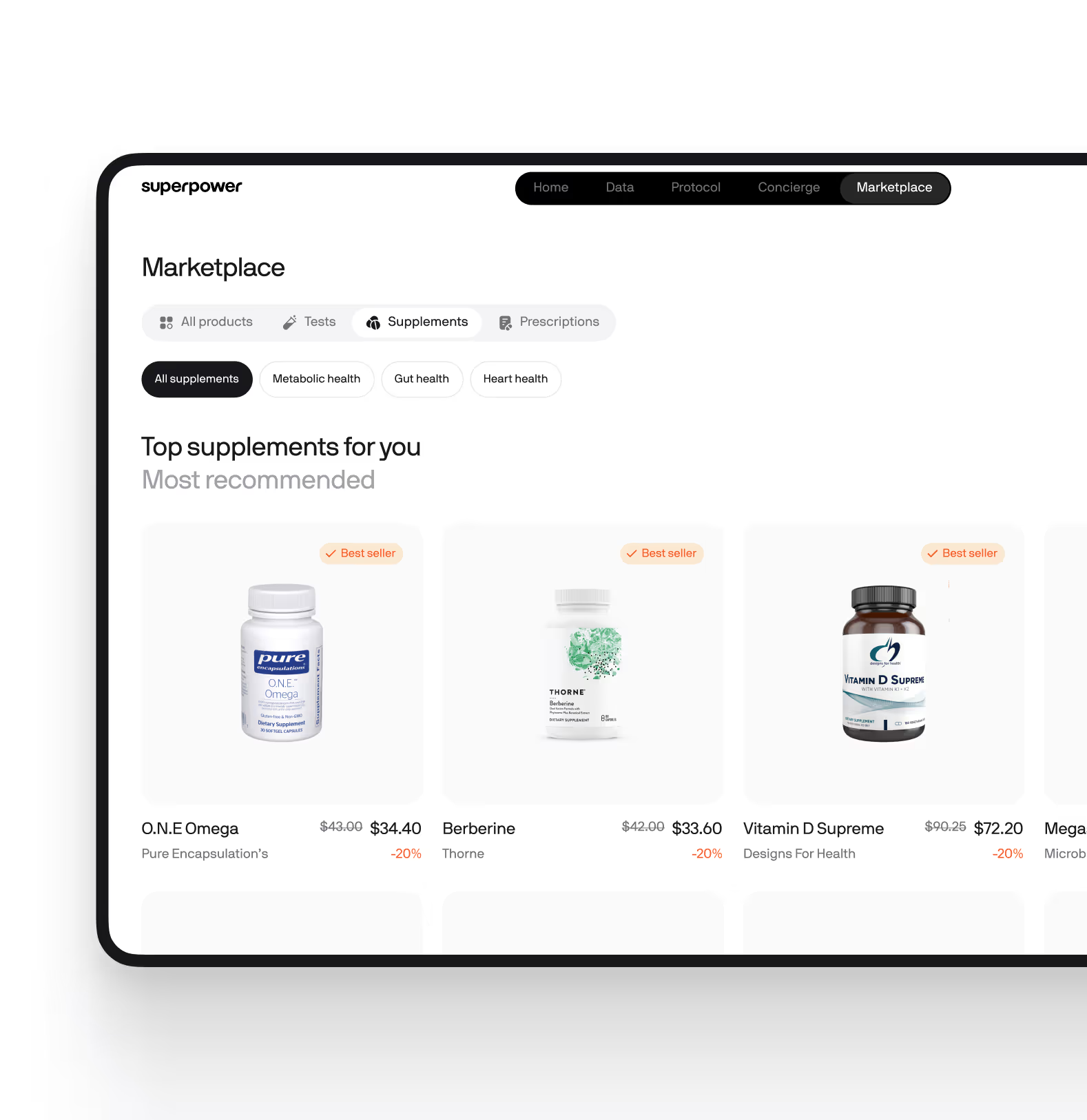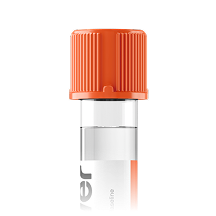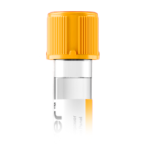Key Benefits
- Check how well your kidneys filter waste and balance fluids and minerals.
- Spot reduced filtration with creatinine and eGFR to stage CKD severity.
- Clarify dehydration versus kidney dysfunction by interpreting BUN alongside creatinine.
- Explain swelling, fatigue, or cramps using albumin, potassium, and kidney function together.
- Protect your heart by flagging dangerous potassium levels and heart rhythm risks.
- Protect bones and vessels by assessing corrected calcium for kidney disease–related mineral imbalance.
- Guide safe medications, diets, and referrals using eGFR, potassium, and trend changes.
- Best interpreted with a urine albumin-to-creatinine ratio and your symptoms.
What are Chronic Kidney Disease biomarkers?
Chronic kidney disease biomarkers are the body’s chemical signals that show how well the kidneys are filtering, balancing, and adapting under stress. Blood tests turn invisible kidney work into clear indicators: waste removal (creatinine; cystatin C), protein breakdown handling (urea nitrogen), salt and acid–base balance (potassium; bicarbonate), mineral and bone regulation (phosphate; calcium; parathyroid hormone), and red blood cell support (hemoglobin, reflecting erythropoietin activity). From these values, clinicians estimate overall filtering capacity (estimated glomerular filtration rate, eGFR), which summarizes how efficiently blood is being cleaned. Together, these biomarkers detect kidney stress early—often before symptoms—track changes over time, and reveal downstream effects that matter for daily health, like heart rhythm stability, bone strength, and energy levels. They also guide safe medication choices and dosing, since many drugs rely on kidney clearance. In short, CKD biomarkers provide a continuous readout of filtration, damage, and compensation, allowing timely action to protect kidney function and the systems the kidneys support.
Why is blood testing for Chronic Kidney Disease important?
Chronic kidney disease testing looks at how well your kidneys filter, balance fluids and electrolytes, manage acid–base, and support bones, blood vessels, and nerves. Because kidneys sit at the crossroads of waste removal, hormone signaling, and mineral metabolism, their biomarkers reflect whole‑body health long before symptoms are obvious.Creatinine typically sits around 0.6–1.3, with men higher than women due to muscle mass; within normal, lower tends to reflect better filtration. eGFR is best high (near or above 90), and a persistent value under 60 suggests chronic impairment. BUN is most reassuring mid‑range, roughly 7–20. Serum albumin is healthiest in the mid‑to‑high normal band, about 3.5–5.0. Corrected calcium is most stable in the middle, near 8.6–10.2. Potassium is safest in the middle, about 3.5–5.0.When these numbers fall, they tell different stories. A low creatinine often reflects low muscle mass or pregnancy’s higher filtration; in older adults and women, baseline runs lower. A low eGFR signals reduced nephron function and may bring fatigue, swelling, or rising blood pressure. Low BUN can reflect low protein intake or liver dysfunction. Low albumin points to inflammation, malnutrition, or urinary protein loss, with edema and frailty. Low corrected calcium in CKD stems from disordered vitamin D–phosphate balance, causing cramps, tingling, or brittle bones. Low potassium can trigger weakness or heart rhythm problems.Conversely, rising creatinine with falling eGFR indicates accumulating wastes; BUN may climb with nausea, itch, or mental fog. High potassium risks dangerous arrhythmias. Calcium can run high with advanced parathyroid overactivity. Even with normal serum albumin, increased urinary albumin is an early vascular–kidney warning.Big picture, these tests link kidney filtration to cardiovascular risk, bone integrity, nerve and muscle function, and long‑term outcomes like heart events, fractures, and hospitalization.
What insights will I get?
Chronic Kidney Disease (CKD) blood testing provides a window into how well your kidneys are supporting the body’s essential systems. Healthy kidneys filter waste, balance fluids and electrolytes, regulate blood pressure, and help maintain bone and cardiovascular health. When kidney function declines, it can disrupt energy production, metabolism, cognition, immunity, and reproductive health. At Superpower, we assess CKD risk and status using Creatinine, estimated Glomerular Filtration Rate (eGFR), Blood Urea Nitrogen (BUN), Albumin, Corrected Calcium, and Potassium.Creatinine is a waste product from muscle metabolism, and its blood level rises when kidney filtration slows. eGFR is a calculated estimate of how efficiently your kidneys filter blood, with lower values indicating reduced function. BUN reflects the amount of nitrogen in your blood from urea, another waste product; elevated BUN can signal impaired kidney clearance. Albumin is a major blood protein made by the liver; low levels may suggest kidney leakage or other systemic issues. Corrected Calcium accounts for albumin levels to give a more accurate picture of calcium status, which is tightly regulated by the kidneys. Potassium is a key electrolyte for nerve and muscle function, and abnormal levels can result from impaired kidney excretion.Together, these biomarkers reveal how stable and effective your kidneys are at maintaining internal balance. Changes in these values can indicate early or advanced CKD, affecting the body’s ability to manage waste, fluid, and mineral balance.Interpretation of CKD biomarkers can be influenced by age, pregnancy, acute illness, certain medications, and laboratory methods. These factors should be considered when evaluating results.


.svg)








.avif)



.svg)





.svg)


.svg)


.svg)

.avif)
.svg)










.avif)
.avif)



.avif)







.png)